Kamasi Washington promises a Proms premiere
- Published
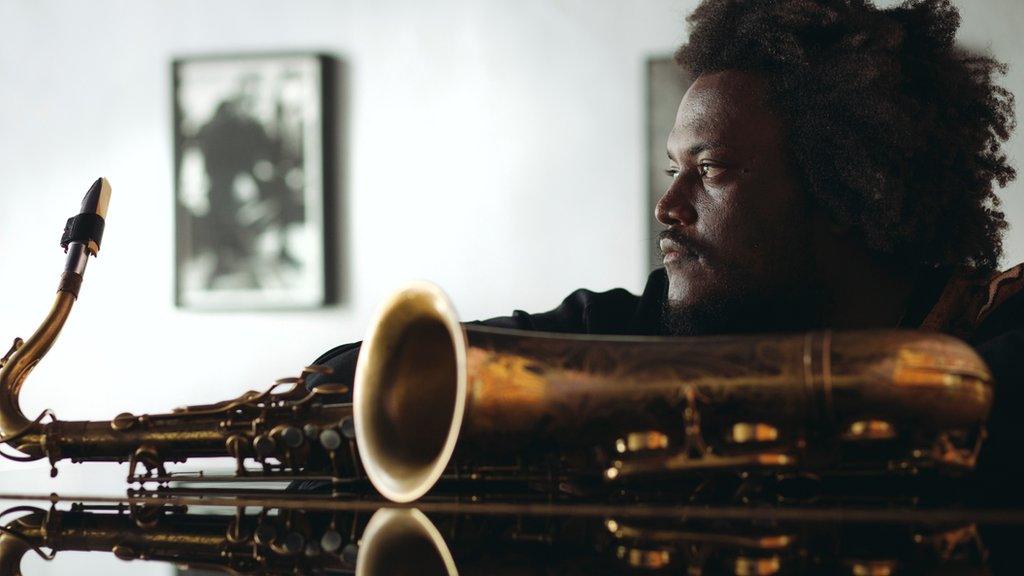
Kamasi Washington's The Epic is one of the few jazz albums to cross over to the mainstream in recent years
Jazz saxophonist Kamasi Washington says he will premiere new music when he plays the BBC Proms in August.
It will be the first new material from the musician since his ambitious triple album The Epic was released last year.
Washington told the BBC the music would come from a "wishlist" of "about 30 songs" he has been working on.
The star, who also scored Kendrick Lamar's To Pimp A Butterfly, will play the Proms with the City of Birmingham Symphony Orchestra and choral backing.
"I've been reading about it and I'm really looking forward to it," he said.
"I'll definitely prepare some of the music from Epic, but I'm also working on some new stuff we could perform that'll be handy.
"It'll be a world premiere."
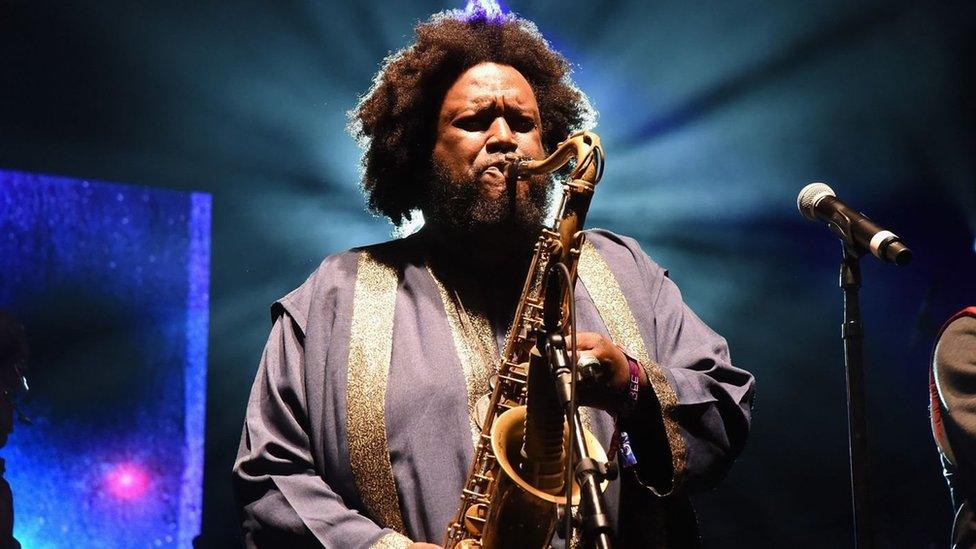
Washington has played with Wayne Shorter, Herbie Hancock, Lauryn Hill, Snoop Dogg, Flying Lotus and Thundercat
Washington has been described as "the biggest thing to hit jazz for years," thanks to The Epic, which was the first jazz release to cross over to mainstream music audiences in some time.
Mixing jazz with hip-hop collage, funk, soul, swing and gospel, the record framed Washington's fiery saxophone solos with a 32-piece orchestra and a 20-person choir, whose parts he wrote and orchestrated over a five-year period.
The basic tracks were laid down during a marathon, month-long recording session in 2011, where Washington and his bandmates laid down enough material for eight albums.
It was an ambitious undertaking for the group, who together form The West Coast Get Down collective. They were all working musicians (Washington toured with Chaka Khan, Herbie Hancock and Lauryn Hill) who turned down paying gigs to work together.
"There was the financial aspect - the more studio time you buy, the better deal you get," says Washington. "But more than that, it was just so hard to get everybody in the room at the same time, because everyone was playing with different artists."
When the sessions drew to a close, the saxophonist laid claim to 45 songs ("hours and hours and hours of material"), 17 of which made it onto The Epic.
But despite the album's daunting, three-hour running time, the record made many critics' end-of-year lists, and went on to win the American Music Prize - which is the US equivalent of the Mercury Prize.
"The album could easily have fallen short of my ambitions - but to go past them? It's an amazing feeling," marvels Washington, who is preparing to launch his European tour next month.
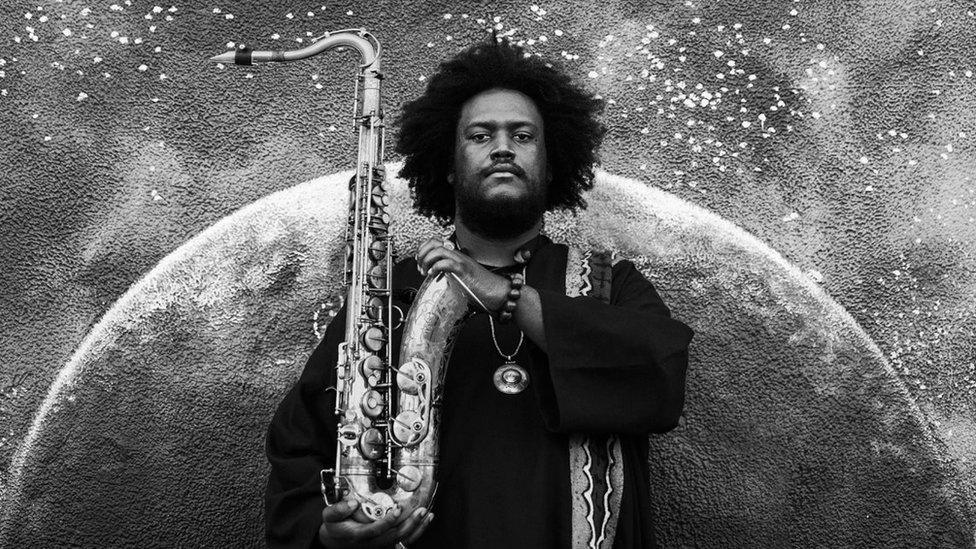
The star's album combines spiritual and mystical elements with political statements - and some blistering jazz solos
Inspired by a dream about a warrior's journey, The Epic is a mystical, spiritual record - but it also contains political elements.
The album's penultimate track, Malcolm's Theme, external, sets Ossie Davis's funeral eulogy for Malcolm X to music, giving way to a plea for understanding drawn from a speech by the civil rights leader from 1965.
It led writer Greg Tate to christen Washington "the jazz voice of black lives matter". But the musician points out that his album pre-dates the current movement, which was sparked by the 2013 acquittal of George Zimmerman over the shooting of unarmed teenager Trayvon Martyn.
"I've had to take my own stance on something like police brutality," he says, having experienced "intimidation" and "misuse of power" growing up in the city of Inglewood, California.
"You're not safe in your own community, from the people who are supposed to be making your community safe," he explains, "so I feel like my music represents that, because I am part of that.
"I am the big, dark-skinned African American male that they look at as a threat... even though I'm not. I don't have any criminal activity, I'm not violent, I don't carry a weapon but I fit their profile of someone who's a threat. And that notion that it's ok to use lethal force on anyone that looks this way... that's something that we've lived with for years. That's nothing new.
"So I think the main issue is really a denial of this [situation] where we've been stuck for almost the last 50 years. We have to accept this is a real issue and there are certain people trying to hide it because they don't want it to go away."
But he's cautiously optimistic of the opportunities for change, as technology means incidents of police brutality and intimidation are being shared widely on social media and, latterly, mainstream news.
"It's almost like we're living in the shadows then all of a sudden the light is shining on you. It feels like we're at a crossroads. Are we going to try to deal with this, or are we going to find another way to pretend it doesn't exist?"
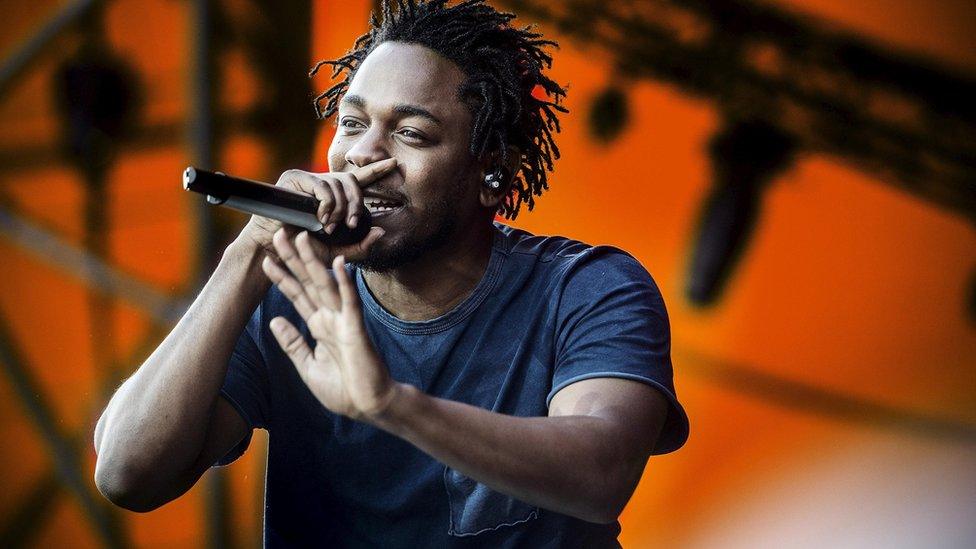
Kendrick Lamar's album was nominated for 11 Grammy Awards but only won in the rap categories
Many of these themes also surfaced on Kendrick Lamar's To Pimp A Butterfly. Washington is exceptionally proud of his involvement, calling the album a "monumental achievement". And he laughs as he remembers the strict security surrounding the recording sessions.
"They'd take your ID and everything," he says. "It was all top secret - like we were creating a time machine or something!"
To Pimp A Butterfly became the most critically-acclaimed record of 2015 - and was widely tipped to win album of the year at the Grammys in February.
When it was beaten by Taylor Swift, Washington simply tweeted an emoji of a broken heart.
"The Grammys feel like the official [statement of] what's happened in music," he says. "It's a beautiful thing that Kendrick's doing and it's having such an effect on the world, so I just felt 'this is what is happening'. So the grief when it [didn't win] takes away from that. That was what the broken heart was.
"But the awards, the money, the fame... all that stuff doesn't really compare to the music he's made. In my mind, he's already won. So it didn't take me too long to get over it!"
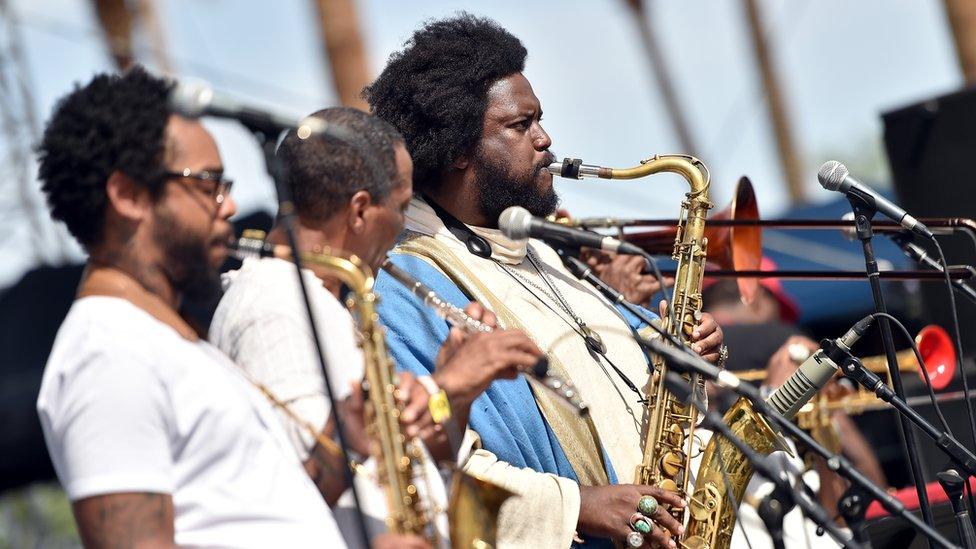
Washington and his West Coast Get Down collective have raised the profile of Los Angeles' jazz scene
The acclaim for To Pimp A Butterfly certainly helped raise Washington's profile - The Epic was promoted as a kind of jazz sequel - but the music stands on its own.
He dislikes being labelled a "crossover artist", saying "music doesn't really exist within boundaries like that.
"I don't feel like I've really crossed over, moreso than risen up."
But he accepts that his music has the capacity to reach people who are put off by traditional jazz.
"There's an idea that jazz is very technical - someone trying to show that they have a mastery of their instrument. My music has always had an emotional, expressive approach - so the skillset that I have, I don't necessarily put on display. I use it in a way that helps me express some bigger idea or emotion."
The musician's wide appeal explains why he's been invited to play both Glastonbury and the Proms this August. Washington says he's been studying the history of the latter festival, hence his decision to premiere new material there.
The only problem he faces now is how to select the setlist.
"I have well over 100 songs that I have to, at some point, try to record," he says. "But it's hard because I just keep writing. Music is like that, it never stops."
Kamasi Washington tours the UK at the end of June, playing in Glasgow, Manchester, Birmingham and Bristol as well as Glastonbury Festival. His late-night Prom takes place at London's Royal Albert Hall on 30 August.

- Published13 April 2016
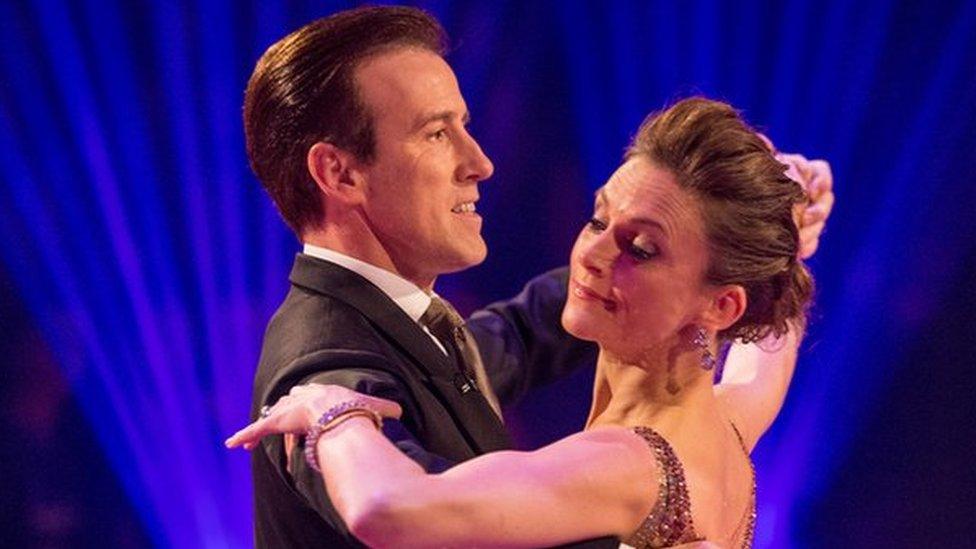
- Published23 December 2015
